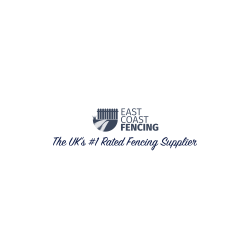Composite Fencing: Is It Right For Your Garden?

Composite fencing has been making waves in the world of garden design and home improvement, offering a modern, durable, and environmentally friendly alternative to traditional wood and metal options. But is composite fencing the right choice for your garden? This comprehensive guide aims to answer your questions, helping you make an informed decision for your outdoor space.
What is Composite Fencing?
Composite fencing is made from a blend of recycled wood fibres and plastic materials. This innovative combination utilises the strength and versatility of plastic while retaining the natural appearance and texture of wood. It's designed to offer the aesthetics of wood without the high maintenance, making it a popular choice among homeowners looking for a long-lasting and beautiful fencing solution.
Benefits of Composite Fencing
1. Durability and Longevity
Composite materials are renowned for their durability. Unlike traditional wood, composite fencing does not warp, rot, or fade under the harsh elements of the British weather. This resilience translates to a longer lifespan, with most composite fencing options coming with a 20-25 year guarantee.
2. Low Maintenance
One of the most appealing aspects of composite fencing is its low maintenance requirements. There's no need for annual painting, staining, or sealing – a simple wash with soapy water is all it takes to keep your fence looking as good as new. This feature makes it an excellent choice for those who prefer spending time enjoying their garden rather than maintaining it.
3. Aesthetic Appeal
Composite fencing comes in a variety of colours and finishes, imitating the look of natural wood or sleek modern designs. This versatility allows you to match your fencing to the style of your home and garden, creating a cohesive and attractive outdoor area.
4. Eco-friendly
For the environmentally conscious, composite fencing is a sustainable choice. The use of recycled materials in its production helps reduce waste and the need for new timber, making it a more eco-friendly option compared to traditional fencing materials.
Considerations Before Choosing Composite Fencing
1. Initial Cost
While composite fencing offers considerable long-term savings due to its durability and low maintenance, the initial investment can be higher than that of wood or chain-link options. However, when considering replacement, repair, and maintenance costs over time, composite fencing often proves to be cost-efficient.
2. Installation
Composite fencing panels are heavier than wood, requiring careful handling during installation. It's essential to consider whether you have the necessary skills for a DIY installation or if you'll need to hire a professional, which could add to the overall cost.
3. Style Preferences
Though composite fencing mimics the look of wood quite effectively, it may not fully satisfy purists who prefer the natural imperfections and ageing process of real timber.
Making Your Decision
Choosing the right fencing for your garden depends on a variety of factors, including budget, maintenance preferences, aesthetic goals, and environmental values. Composite fencing stands out as a durable, low-maintenance, and beautiful option that can enhance the privacy and appeal of your outdoor space. However, it's essential to weigh the initial investment against the long-term benefits and consider whether the aesthetics and practicalities align with your vision for your garden.
If you're leaning towards composite fencing, it could be worth visiting a supplier or showroom to see and feel the materials for yourself. Getting a firsthand look can help you gauge the quality and finish of the product, ensuring that you make a choice you'll be happy with for years to come.
Regardless of your decision, investing in good-quality fencing is crucial to creating a secure, private, and aesthetically pleasing garden space where you can relax and enjoy the beauty of your outdoor surroundings.













Leave a Comment